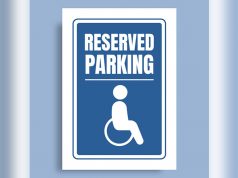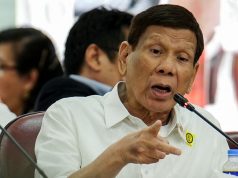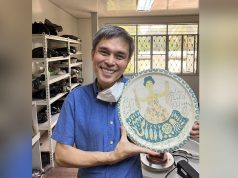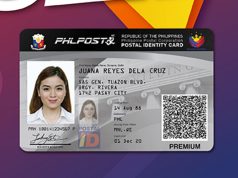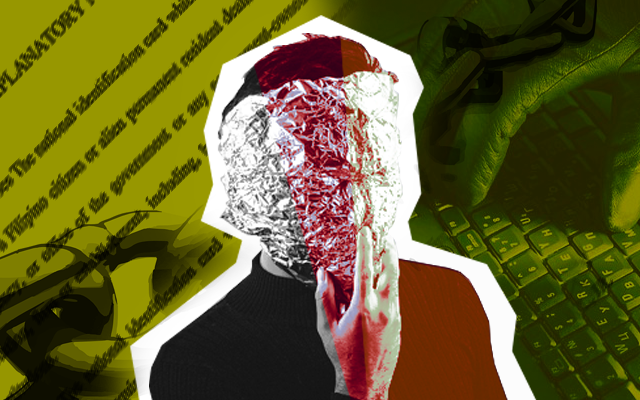
The proposed national ID system may soon become a law, but many sectors are divided on whether the system would be thoroughly advantageous or mired with privacy and security issues.
A bicameral committee of both houses of Congress approved Senate Bill 1163, also known as the “National Identification System Act of 2007,” and is poised to be signed by President Rodrigo Duterte.
It proposes to create the Philippine Identification System, or PhilSys, that aims to unify pertinent information of an individual in one card.
Wag nang matigas ang mga ulo. Support natin ang National ID system. Wag matakot, mas maganda ito sa seguridad natin. Iwas masasamang loob. Other countries have been doing it for years and worked out just fine. ????#IsupportNationalIDsystem #Pilipinas #Philippines
— Gayle Rowan (@gal_rowan) May 25, 2018
At first, I agreed with National ID system, but after reading articles about Data Privacy Act and our Right To Privacy, I had doubts, switched side and realized that this will give our government remarkable and unprecedented access to a huge cache of our personal data. pic.twitter.com/i18NmWFmVr
— B E & B E N (@itsbeben11) May 28, 2018
Several countries are also using national ID cards for their own citizens. These are Belgium, China, France, Germany, Italy, North and South Korea, Papua New Guinea, Singapore, Spain, Switzerland, Thailand and Zimbabwe, among others.
The good
When needing access to government services
Jamael Jacob, director of Ateneo de Manila’s University Data Protection Office, wrote on GMA News: “A good universal ID system can make the delivery of and access to public services more efficient.”
Sen. Panfilo Lacson also explained in a series of tweets how it can also help cut red tape:
“Kung nag-renew ka o nag-a-apply ka sa SSS para magkaroon ng benepisyo at may kapangalan ka, ‘di ka makakakuha o rehistro sa SSS (na) napakatagal ng proseso, aabutin ng ilang buwan.”
“Maski nakalimutan mo at dala mo phone mo, naroon serial number mo (of the PhilSys card), ‘yan na lang sasabihin mo sa magka-transact ka, gagawa ng transaction, sapat na ‘yan.”
When law enforcement officials are on a manhunt
The system is seen to help track down criminals and terrorists more easily. Lacson wrote:
“So this concern of the leftists, members Abu Sayyaf group, and other enemies of government [can be understood] because with the ID system, it would be easy to identify who is who.”
It can also be used to monitor individuals blacklisted by government.
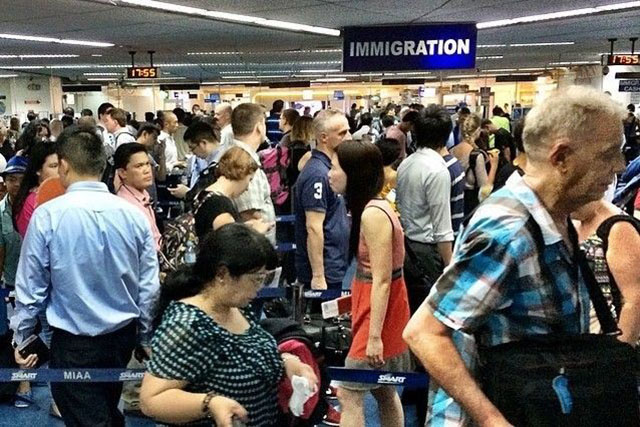
When there are major outbreaks
A centralized database would be helpful to the Department of Health if it encounters incidents of major virus-related outbreaks, for instance. Jacob said:
“When the MERS (Middle East respiratory syndrome) virus broke out in 2014, the Department of Health felt that it could have quickly tracked down people who shared the same flight as a Filipino who tested positive for the virus if a national ID system was in place.”
The bad
Ever since it was introduced during Arroyo’s time, the national ID system has been subjected to various criticisms.
Possible data breach
The government has yet to prove it is capable of protecting its citizens’ data, with several instances of hacking of government websites and digital assets over the past years. The biggest case of a data breach was the “Comeleak,” which exposed voters’ personal information.
A similar thing might happen with the national ID system’s database. Jacob wrote:
“The 2016 Comelec breach only reinforced public perception that the Philippine government is incompetent or poorly equipped to manage and maintain secure information systems.”
Bayan Muna Rep. Carlos Zarate said, “We are reiterating na hindi ito 100 percent na ang mga data ay maproteksyunan ng gobyerno na ilalagak natin sa PSA (Philippine Statistics Authority).”
“Alam naman natin na napakaraming breach of information ngayon at malaking usapin na ang systems ng PSA operated by foreign company, Unisys.”
Questionable law enforcement effectiveness
A report by the Senate Economic Planning Office in 2005 disputes the benefits of a national ID system in going after terrorists and criminals.
This was attested by London-based human rights group Privacy International, which said that there was “almost no empirical research… to clearly establish how identity tokens can be used as a means of preventing terrorism.”
Expensive costs
The government naturally has to continually shoulder expenses for acquiring and maintaining equipment, devices, logistics and processes to issue an identification card to every citizen.
A report stated that the costing of the full rollout will reach P30 billion.
Jacob wrote, “Identity management programs are expensive to establish and maintain, and require significant financial commitment from the government.”

The ugly
Possible violations of privacy
Through the national ID system, the government has full “unprecedented access” to citizens’ personal data. The Foundation of Media Alternatives wrote:
“One should be constantly wary of any effort or measure that aims to give more power to an administration that already has a stranglehold over all three branches of government.”
The Communist Party of the Philippines expressed its fears of “mass surveillance” by the government and stated:
“Duterte’s National ID system will be a deathblow to privacy rights. In the hands of a repressive and oppressive state, the collection of such information will surely be weaponized and used as a tool for mass surveillance, social, political and criminal profiling.”
Putting civil liberties in danger
Do you trust your government? A national ID system will allow the state to keep tabs on you. Worse, an oppressive regime can resort to violations of its population’s freedoms, Jacob pointed out.
Sen. Leila de Lima warned that this means of monitoring is especially dangerous in the hands of leaders who do not care about human rights.
“Ang maasahan natin na hindi gagamitin ang National ID System para tuluyan ng wasakin ang kakarampot na proteksyon ng batas na umiiral pa sa ngayon.”
Kabataan Rep. Sarah Elago echoed her sentiment in another interview:
“Dagdag bala ‘yan sa Duterte administration na mahilig magpatahimik, manggipit at mag-criminalize ng dissent dun sa mga local na tumututol sa kanilang mga patakaran.”
This may also be referred to as “function creep,” where the system might be used “for purposes beyond that originally declared,” Jacob noted. — Art by Uela Badayos






